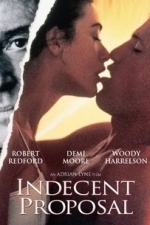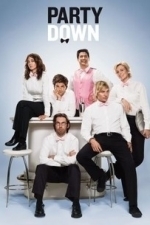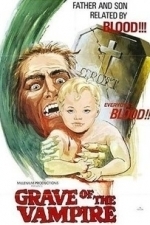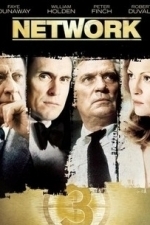Search

Indecent Proposal (1993)
Movie Watch
David (Woody Harrelson) and Diana Murphy (Demi Moore) are a loving couple with a bright future....

Party Down - Season 1
TV Season Watch
A group of struggling actors and dysfunctional dreamers wait for their big break while they are...
RəX Regent (349 KP) rated Network (1976) in Movies
Feb 19, 2019
“I’m mad as hell and I’m not gonna take it anymore!”
…the lasting legacy of Peter Finch’s rants, which began with a breakdown and became the ratings winner in the 1970’s Network driven news media. This is of course, fiction but the commentary on the changing and more corporate driven American media industry of the the time is not without merit.
Smartly scripted, on the ball cynicism and yet harking back to the rose tinted nostalgia common with American media movies in whcih the industry was supposedly filled with Walter Cronkites,
the notion that American press was once beyond reproach is clearly a fallacy, in contrast, the notion that American news media was becoming so ratings driven that the news gave way to outlandish editorialism, is not.
Howard Beale (Finch) has an on air breakdown and whilst his best friend and producer, Max Schumacher (William Holden) tries to pull him from the air waves, allowing him to bow out with some dignity, the new wave of corporate management lead by CEO Frank Hackett (Robert Duval) and Holden’s replacement and eventual lover, Diana, (Faye Dunaway), have other ideas.
She sees an opportunity in the ratings spike gained by Beale’s rants which speak to the peoples growing frustrations and takes advantage, only driven by ratings.
Though the screenplay and performances are nothing less than brilliant, there are two core problems with this movie.
The first being that it is too long. The plot seems to be dragged out and repetitive as we approach the almost inevitable conclusion and the second is the level of preaching. But this is a symptom of the first, opening with a good argument, with old school journalism versus the TV generation and as the film goes on, the arguments need to escalate but since this was covered in the first half an hour, the points become laboured and over started.
The notion that the TV generation is shallow and amoral is put at odds with the middle aged newspaper reader, where time and decency are standard. This is a point which I refuse to accept since some of the 20th centuries most amoral acts where committed either before 1936, the birth of television and in the first couple of decades there after, by the very generation whcih is being held up as the moral standard here.
large_network_blu-ray_3The press has always had its paymasters, always had to sell newspapers and whilst the medium and methods may have changed, this does feel like sour grapes by the end. Criticising the characters motivations is one thing, but this film seems to imply that the modern world of television is making sociopaths of us all, dumbing us down and numbing our emotions to the point of accepting nothing but pure spectacle.
In many ways this is true but is also a very flawed argument and comes across as bunch old men crying into there Scotch in some dimly lit bar, in a way not too dissimilar to the print or broadcast media of today, hitting out at the blogging and twitter generation.
The ending was amusing though with the quote “This was the story of Howard Beale, the only known case of a man killed because of poor ratings”.
Very droll.
Smartly scripted, on the ball cynicism and yet harking back to the rose tinted nostalgia common with American media movies in whcih the industry was supposedly filled with Walter Cronkites,
the notion that American press was once beyond reproach is clearly a fallacy, in contrast, the notion that American news media was becoming so ratings driven that the news gave way to outlandish editorialism, is not.
Howard Beale (Finch) has an on air breakdown and whilst his best friend and producer, Max Schumacher (William Holden) tries to pull him from the air waves, allowing him to bow out with some dignity, the new wave of corporate management lead by CEO Frank Hackett (Robert Duval) and Holden’s replacement and eventual lover, Diana, (Faye Dunaway), have other ideas.
She sees an opportunity in the ratings spike gained by Beale’s rants which speak to the peoples growing frustrations and takes advantage, only driven by ratings.
Though the screenplay and performances are nothing less than brilliant, there are two core problems with this movie.
The first being that it is too long. The plot seems to be dragged out and repetitive as we approach the almost inevitable conclusion and the second is the level of preaching. But this is a symptom of the first, opening with a good argument, with old school journalism versus the TV generation and as the film goes on, the arguments need to escalate but since this was covered in the first half an hour, the points become laboured and over started.
The notion that the TV generation is shallow and amoral is put at odds with the middle aged newspaper reader, where time and decency are standard. This is a point which I refuse to accept since some of the 20th centuries most amoral acts where committed either before 1936, the birth of television and in the first couple of decades there after, by the very generation whcih is being held up as the moral standard here.
large_network_blu-ray_3The press has always had its paymasters, always had to sell newspapers and whilst the medium and methods may have changed, this does feel like sour grapes by the end. Criticising the characters motivations is one thing, but this film seems to imply that the modern world of television is making sociopaths of us all, dumbing us down and numbing our emotions to the point of accepting nothing but pure spectacle.
In many ways this is true but is also a very flawed argument and comes across as bunch old men crying into there Scotch in some dimly lit bar, in a way not too dissimilar to the print or broadcast media of today, hitting out at the blogging and twitter generation.
The ending was amusing though with the quote “This was the story of Howard Beale, the only known case of a man killed because of poor ratings”.
Very droll.

